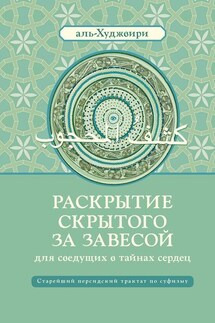Power and submission: unlocking the Mind's hidden potential - страница 18
Buddhist philosophy places suffering at the center of its teachings. Buddha taught that pain arises from attachment and illusions that hold us captive. In the "Four Noble Truths," he explained how understanding the nature of suffering leads to liberation. In Buddhism, pain is seen as a stage to pass through in order to attain enlightenment. It is not an enemy but a guide leading to inner harmony.
Heraclitus, an ancient Greek philosopher, viewed suffering as part of the universal order. He believed that pain and joy, struggle and peace, are opposites that together create harmony in the world. “Pain is the beginning of change,” he said, suggesting that suffering helps us understand the value of happiness and opens the door to transformation.
Modern research supports these philosophical intuitions. Pain, especially emotional pain, activates areas of the brain responsible for self-reflection and decision-making, such as the prefrontal cortex and hippocampus. This explains why suffering often forces us to reevaluate our values and seek new paths.
For ancient philosophers, suffering was not merely a trial but a process that cleanses and transforms. It dismantles the familiar world, exposing weaknesses and fears, but simultaneously reveals a path to understanding. Suffering is not a curse but an opportunity to delve deeply into oneself, transcend limitations, and rise above the ordinary. It teaches resilience, humility, and true freedom—qualities that lie at the heart of its unique value.
Pain as a Source of Personal Growth
Pain is not an enemy but a teacher that opens the door to your true self. Its nature is dual: it destroys, yet it also creates, pushing us to confront our lives without illusions. Through pain, we discover our weaknesses, reassess priorities, and find the strength to move forward. It becomes not merely a trial but a critical stage of personal transformation.
Biologically, pain is an alarm signal that activates mechanisms of adaptation. It stimulates the prefrontal cortex and hippocampus, which are responsible for decision-making and memory. According to research published in the Journal of Neuroscience (2020), chronic pain enhances the brain’s neuroplasticity, allowing it to form new neural connections and adapt to challenging conditions. This explains why people who endure pain often emerge stronger, wiser, and more resilient to future challenges.
Psychologically, pain serves as a catalyst for change. It pulls us out of our comfort zone and forces us to ask crucial questions: “Why did this happen? What can I do to change it?” These questions become the starting point for growth. Pain breaks down outdated behavior patterns and beliefs that no longer serve us, paving the way for new, stronger, and more resilient ones.
Philosophers have long recognized pain as more than suffering. Nietzsche famously said, “What doesn’t kill us makes us stronger.” For him, pain was not a curse but a challenge that strengthens the will and spirit. Stoics like Seneca and Epictetus taught that suffering tests character. They believed that true strength lies not in avoiding pain but in embracing it and using it for growth.
Emotional pain, like physical pain, unlocks the door to deep self-awareness. It highlights our vulnerabilities and compels us to work on them. Research published in Psychological Science (2019) confirmed that people who have endured significant emotional crises often demonstrate greater resilience to stress and achieve long-term success. Pain becomes a turning point where you decide: remain the same or grow stronger.






